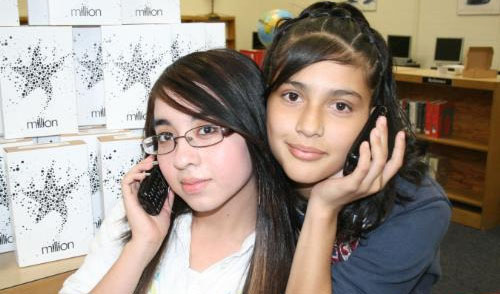What Companies Do for Kids’ Education
In our world of nearly seven billion people where almost half of them are uneducated, leading companies are leaving no stone unturned to contribute toward children’s education to ensure better future for them.
While the world population is expected to reach around 10 billion by the year 2050, there will be more uneducated than educated people by then if sufficient education measures are not taken.
So, as part of their corporate social responsibility initiatives, major organizations are taking various steps to educate children and improve the education standards around the world.
Retail company Target Corporation has announced its plans to donate more than $500 million by the end of 2015 to support education, doubling its support to-date, for a total of more than $1 billion.
The financial commitment is part of Target’s new reading initiative, Target Read With Me, aimed at helping more U.S. children read proficiently by the end of third grade. (Read: Target to Give $1 Billion in Support of Education)
Advertisements:
Raman Media Network: Connecting Communities
Knowledge Stories for Children
Moreover, Facebook chief Mark Zuckerberg has decided to create a $100 Million Foundation — Startup: Education — to improve student success starting with Newark, New Jersey.
The foundation’s first project will be to measurably improve academic achievement for Newark students and create a national model for rewarding excellence in education. (Read: Facebook Chief Zuckerberg Forms $100M Foundation)
In an online effort to put new books in the hands of poor children around the world, supporters of Children International helped Visa donate $50,000 towards the purchase of books for impoverished children.
This comes as a result of the organization’s “Click for a Cause” program sponsored by Visa Inc. The donation will allow Children International to buy books to fill nearly 100 libraries in seven countries with new textbooks and storybooks that will provide children with the opportunity to strengthen their reading skills. (Read: Visa Supports the Click for a Cause Program)
While billions of people in the world are almost illiterate, the World Bank reports that out of them 1 billion people are unable to even read or write their own names.
Along with traditional teaching methods, companies are using tech tools to improve the level of education among children.
The Million, for example, is an incentive program that rewards sixth and seventh graders with free cell phones in exchange for academic achievement.
TracFone Wireless, America’s leading “No-Contract” cellular service provider and the Education Innovation Laboratory at Harvard University (EdLabs) has announced the program for Oklahoma City Public Schools. (Read: Free Phones for Mobile Education Program)
And a “virtual science playground,” the Mad Science Kids Club offers children a science-based platform for connecting, exploring and learning with peers online through science enrichment programs.
It is claimed to be the first-ever science social network platform created specifically for kids. (Read: Now a Science Social Network for Kids)
Among other technology-based education initiatives, tech company AMD says that the AMD Foundation, in support of AMD Changing the Game, has awarded a grant to San Antonio, TX PBS affiliate KLRN to help enable youth to create games around social issues in Whyville.net, a learning-based virtual world on the Internet.
Once games are created, KLRN will help youth develop video shorts featuring the game creation process including interviews with “Whyvillians” discussing what they learned about creating games. (Read: AMD to Help Youth Create Games in Virtual World)
Software major Microsoft believes that teachers’ education is equally important to improve children’s education. Microsoft Partners in Learning has just announced the winners of the 2010 Worldwide Innovative Teacher Awards at the sixth annual Worldwide Innovative Education Forum.
These awards are the global culmination of local and regional events held around the world throughout the year, where teachers present ideas on how technology can further educational transformation to help improve the way students learn. (Read: Microsoft Honors Top Teachers of the World)
These are among the many measures that companies are taking to supplement the efforts of various governments around the world to improve the education standards for children.





